Nose piercings allow personal expression, but are they acceptable at the office? This guide covers how to navigate nose piercings professionally, from dress codes to legal rights. Read on for tips on rocking your look respectfully.
Nose Piercings and their Acceptance in the Workplace
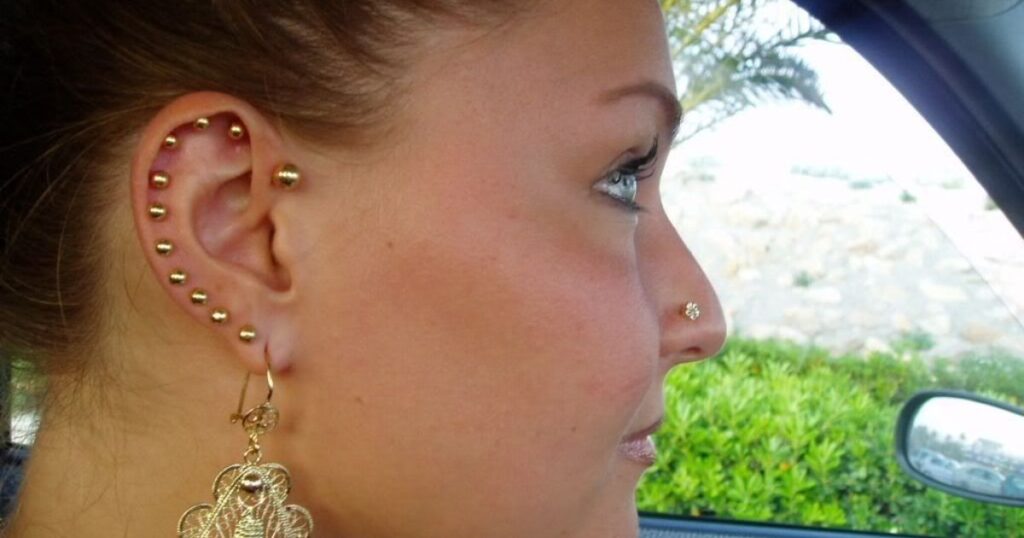
Nose piercings have become increasingly common, but professional settings often still follow traditional dress codes. Acceptance depends on factors like:
Industry and role type: Creative fields are typically more welcoming than conservative ones. Corporate positions tend to require discreet style. Company culture: Startups and youth-oriented brands are generally more accepting than traditional offices. Customer perceptions: Client-facing and public roles warrant more conservative presentation. Size and placement: Small studs are viewed as more professional than rings or septum piercings. Overall, subtle nostril studs are gaining acceptance, even in formal workplaces as norms shift. But radical style is still frowned upon in some professional spheres.
Jobs that Allow Nose Piercings
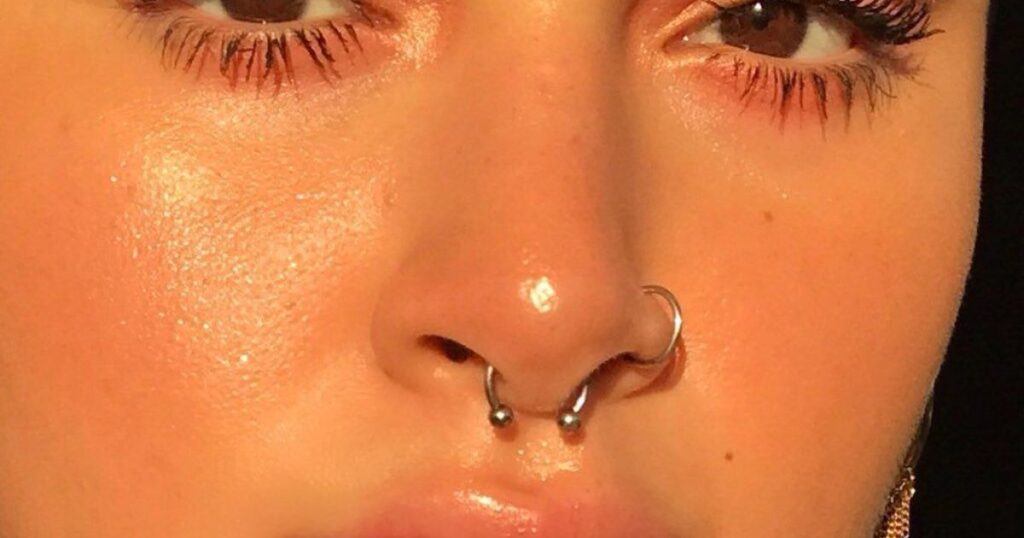
The idea of work is undergoing a transformation, bringing about changes in our workplace cultures. The era of strict appearance regulations prevailing across all industries is fading away. In my ten years of navigating through different sectors in my career, I’ve observed that the tolerance towards nose piercings can reflect a company’s overall stance on creativity, diversity, and individualism. Let’s delve into this aspect further. Nose piercings are widely accepted at these types of jobs:
Creative Industries:
The realm of creativity has consistently served as a stronghold for personal expression, making it unsurprising that nose piercings have found a hospitable haven within this space.
Fashion
Trendsetters in fashion and retail often sport nose piercings as part of their chic style. Edgy designers, buyers, and visual merchandisers can typically pierce their nose without issue.
Art
Fine artists, designers, photographers and other creatives have freedom of self-expression. Nose piercings are common forms of adornment without judgment.
Music
Performers, producers, and DJs in the music industry frequently incorporate piercings into their look both on and off stage.
Service Industries:
Although creative sectors may be the apparent champions of tolerance, service industries, shaped by direct interactions with consumers, exhibit a subtle and nuanced connection with nose piercings.
Food Service
Nose studs often adorn chefs, waitstaff, and hosts at hip restaurants and cafes. Casual food service environments welcome piercings.
Retail
Music stores, boutiques, and other youth-oriented retail outlets encourage employees to showcase personal style, including subtle piercings.
Hospitality
Hotels, cruise ships, and resorts aimed at a chic crowd hire staff to match their brand. Piercings are part of the aesthetic.
Technology Industry:
In the realm of technology, your capabilities take center stage, often outshining even the most conspicuous nose stud.
Startups
Small tech companies and startups embrace casual cultures where nose studs fit right in.
Software Development
Programmers, developers, engineers, and IT professionals often view piercings as a form of self-expression to celebrate at work.
Design
Graphic, web, and UX designers express creativity through nose piercings in laid-back tech studio environments.
Examples of Companies with Lenient Piercing Policies
Google, Spotify, and Twitter are known for relaxed piercing policies aligned with their youthful cultures.
Jobs that Don’t Allow Nose Piercings
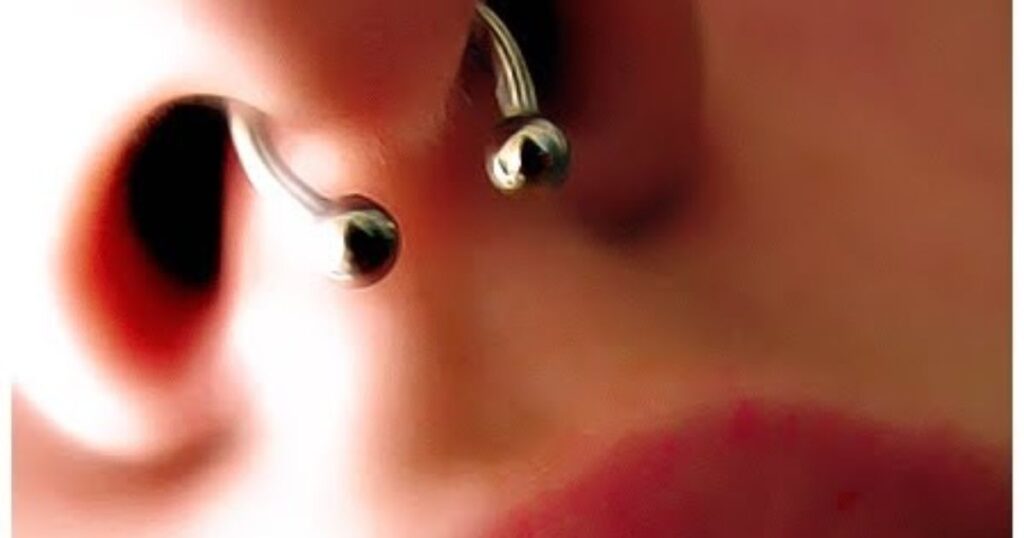
As the acceptance of nose piercings increases, it’s crucial for us to recognize the areas where they are still met with skepticism or outright resistance. Drawing from my interactions with professionals across various fields, I can attest that the discussion goes beyond mere aesthetics. Let’s delve into this intricate debate. More traditional environments continue to discourage nose piercings, including:
Corporate Jobs:
The realm of corporations, frequently regarded as the heart of traditional values, operates according to its distinct set of logic and rationale.
- Finance: Banks, investment firms, accounting and financial corporations mandate conservative presentation. Piercings must be discreet if present.
- Law: Law firms, courthouses, and legal advisors require polished, traditional appearance aligned with the profession’s principles.
- Consulting: Management, HR, and IT consulting firms catering to corporate clients expect conventional business dress. Nose studs are uncommon.
Healthcare Jobs:
In the realm of healthcare, the stakes are elevated, and the discussions are heightened.
- Nursing: Most nursing environments insist on neutral, approachable presentation to patients. Nose studs and rings are prohibited.
- Medicine: Doctors, surgeons, dentists, and specialists cannot wear distracting piercings while administering care and procedures.
- Dentistry: Dental practices discourage nose piercings to convey sterile, professional confidence to patients.
Government Jobs
When catering to the public, guidelines are frequently influenced by a combination of tradition, societal expectations, and the inherent characteristics of the role.
- Military: All branches of the armed forces ban facial piercings as part of uniform presentation and discipline.
- Law Enforcement: Police departments mandate a clean-cut appearance aligned with the profession’s principles. No facial piercings are allowed.
- Public Administration: City, state, and federal government agencies expect formal conservative dress. Nose studs are strongly discouraged.
Examples of Companies with Strict Piercing Policies:
Goldman Sachs, PricewaterhouseCoopers, Deloitte, and most law firms expressly forbid visible facial piercings.
Factors that Influence Piercing Policies in the Workplace
What determines professional piercing policies? Key factors include:
Company Culture and Values:
More traditional, buttoned-up cultures demand conservative looks. Younger, laid-back companies embrace creative expression.
Customer Perception and Expectations:
Outward-facing roles require inspiring trust and conveying competence to serve clients. Medical, legal, and financial fields are most sensitive.
Safety Concerns and Regulations:
Facial jewelry poses risks for workers operating machinery or in physical roles. Healthcare workers must avoid infection risks. Regulated professions like law enforcement ban piercings. So consider your industry, role, and employer culture when abiding by piercing policies or asking about exemptions.
How to Navigate Nose Piercings in Job Interviews
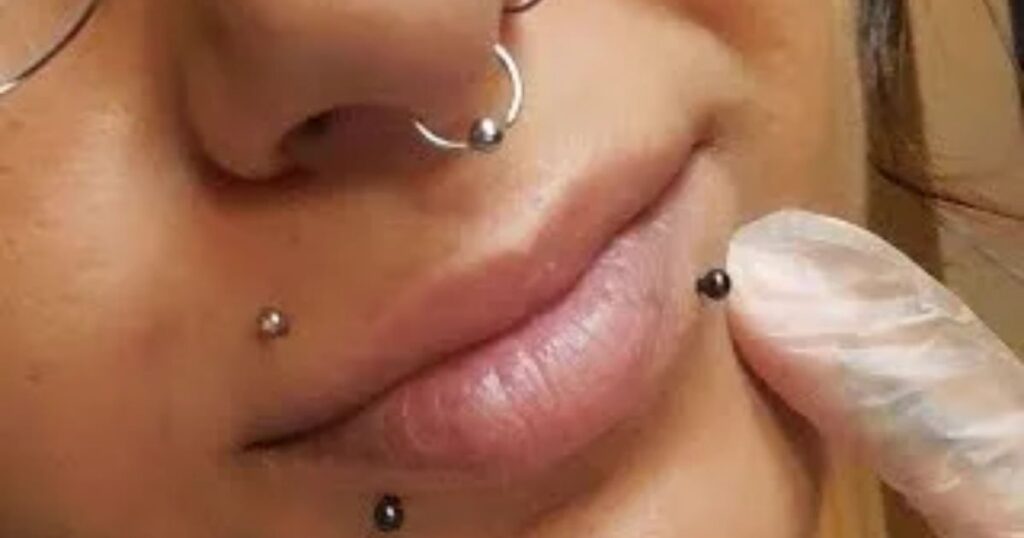
Assess the context when deciding whether to wear nose jewelry in interviews:
When to Flaunt and When to be Discreet: Highlight your piercing for creative or youth-focused employers. Conceal subtly with retainers for formal roles until the culture proves piercing-friendly.
Asking the Right Questions Regarding Company Culture and Dress Code: Politely ask about norms for self-expression during interviews if unclear on policies. Avoid assumptions. Adapt piercing presentation to convey dress codes and values. Lead with your qualifications first.
Nose Piercings and Professionalism: Can They Coexist?
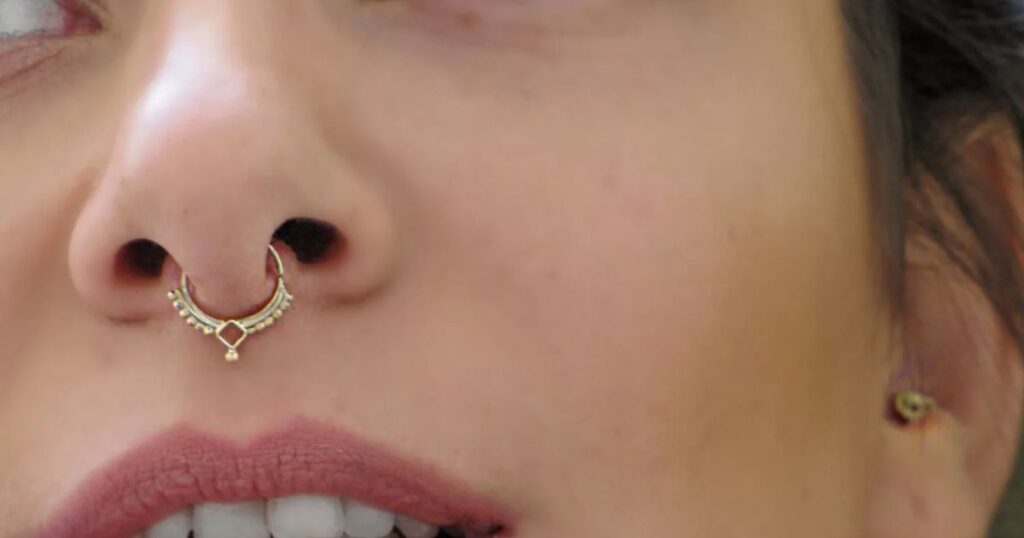
Absolutely. Here’s how nose piercings and professionalism blend harmoniously:
Challenging Stereotypes and Misconceptions:
A nose stud alone doesn’t undermine merit. Professionals should be judged on performance, not appearances. Piercings don’t reduce competence or character. With growing acceptance, subtle studs or hoops complement professionalism. Don’t judge capabilities by appearance.
Legal Implications and Rights
Do anti-discrimination laws protect piercings? Consider:
Discrimination Based on Appearance: What the Law Says: No federal laws explicitly protect employees from nose piercing discrimination. Only certain states, cities, and counties prohibit discrimination based on appearance.
Standing up for Personal Expression Rights: Employees may argue piercing bans infringe on gender expression rights and religious freedoms. But companies can usually enforce dress codes requiring concealment or prohibition. Know your state and local laws. Challenge biased misconceptions.
FAQ’s
Is it advisable to get a nose piercing if I’m job hunting in a conservative field?
No, avoid new facial piercings when job seeking in traditionally conservative industries like finance, law, or healthcare. Wait until established in a piercing-friendly employer.
How can I gauge a company’s stance on nose piercings during an interview?
Politely ask about cultural norms regarding self-expression. Or check if current employees visibly have piercings. Conservative dress codes and values usually prohibit them.
Are there any legal protections against discrimination based on nose piercings?
Very limited. Only certain states and cities prohibit appearance discrimination, but federal law provides no protections. Employers can generally enforce piercing bans.
How can I style my nose piercing to make it less conspicuous in professional settings?
Use a small delicate stud, opt for subtle colors like silver or black, avoid eye-catching gems, place it higher on the nostril, or position a hoop inside the nose rather than outside.
Which countries or regions are most accepting of nose piercings in the workplace?
Western cultures like North America, the UK, and Australia are the most progressive regarding workplace piercing policies. Asia, the Middle East, and parts of Europe remain more conservative.
Conclusion
Attitudes on professional nose piercings are gradually relaxing as self-expression gains acceptance. But some fields remain conservative. Adapt your look to company culture. Lead with your skills and character, not appearance. Respect policies while subtly challenging outdated biases. With the right piercing and the right attitude, you can positively progress professional perceptions.



















